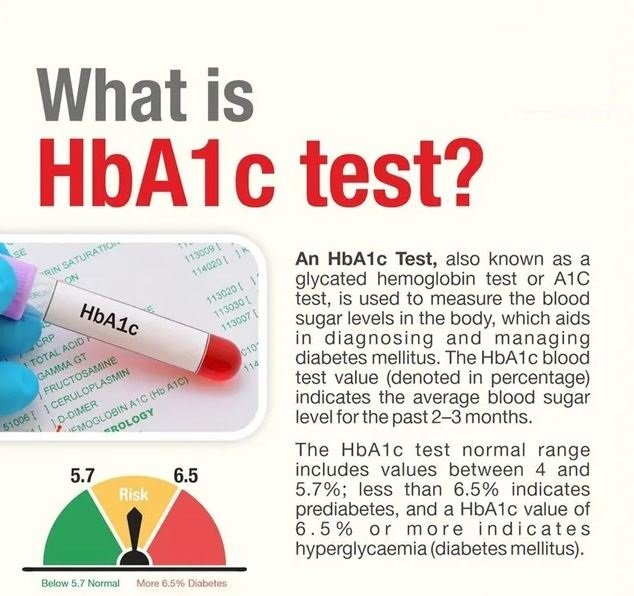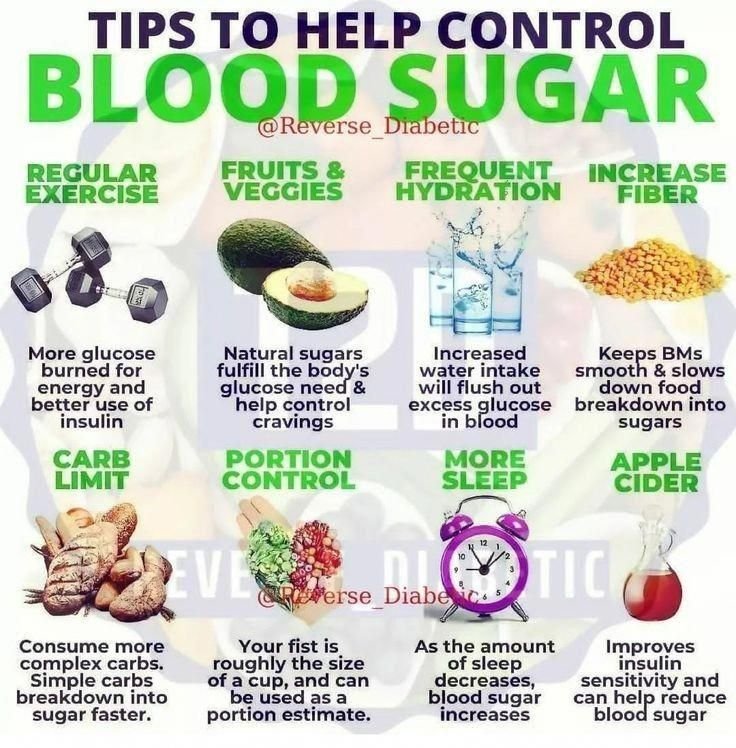What is HbA1c test ?

The HbA1c test, also known as the glycated hemoglobin test, is a crucial diagnostic tool used to assess long-term blood sugar control in individuals with diabetes. It measures the percentage of hemoglobin in the blood that has become glycated, or bonded to glucose, over a period of approximately three months.
Unlike other blood sugar tests that provide a snapshot of glucose levels at a given moment, the HbA1c test offers insight into average blood sugar levels over time. It is a valuable indicator of how well diabetes is managed and provides an overall picture of a person's blood sugar control.
The test involves a simple blood draw, usually from a vein in the arm, and the sample is sent to a laboratory for analysis. The results are typically reported as a percentage. For individuals without diabetes, a normal HbA1c level is usually below 5.7%. Prediabetes is indicated by levels between 5.7% and 6.4%, while a diagnosis of diabetes is confirmed if the HbA1c level is 6.5% or higher.
Regular monitoring of HbA1c levels is essential for managing diabetes effectively. It helps healthcare professionals make informed decisions regarding treatment plans, lifestyle modifications, and medication adjustments. By keeping HbA1c levels within a target range, the risk of diabetes-related complications can be minimized.
It is important to note that individual circumstances may vary, and it is always recommended to consult with a healthcare provider to fully understand and interpret HbA1c test results in the context of personal health.
Releted FAQ's

5 Best Dharamshalas in Ayodhya Near Ram Mandir
01 Jan 2025

Who Are the Top 5 ENT Specialists in Kanpur?
28 Nov 2024

Invest Smart: Why Ultima 107 Is best Low-Rise Residential Project ?
16 Sep 2024

Top 5 Gastroenterologist in Hyderabad
07 Sep 2024

Who is Top 10 Immigration Consultants in Dubai ?
16 Aug 2024

What does LGBTQ mean?
13 Jul 2024

Which are the Top 10 Budget Hotel in Ayodhya near Ram Mandir ?
02 Jul 2024

Which are the top 10 travel agency in ayodhya ?
02 Jul 2024

What is Glycemic index (GI) ?
27 Jun 2024

How to control sugar?
27 Jun 2024
Our Categories
Medical: Doctors , Endocrinologist , Neurologist , Pediatrician , Dermatologist , Gastroenterologist , Orthopedic , Cardiologist , Gynecologist , Physicians , Nephrologist , Surgeon , ENT specialist , Psychiatrist , Oncologist , Radiologist , Pulmonologist , Dentist , Hematologist , Eye Specialist , Plastic Surgeon , Veterinary , Laparoscopic Surgeon , Urologist , IVF , Neonatologist , Physiotherapy , Liver Transplant , Neurosurgeon , Eye specialist , Orthopedic Surgeon Hospitals , Eye Hospital , Orthopedic , Heart , Cardiology , Clinic , Homeopathy Clinic , IVF Treatment , Brain & Spine Centre , Multispecialty Hospital , Dental Clinic , Dermatologist , Ayurvedic Hospital Pathlabs , Veterinary , Laparoscopic Surgeon , Clinic , Homeopathy Clinic , Urologist , Neurosurgeon , Dental Clinic , Dermatologist , Eye specialist , Ayurvedic Hospital , Diagnostic Center
Real Estate: Shoping Mall , Residential , Commercial , Plots , Builders and Developers , Upcoming Projects , Agents , Lawyer , Photographer , Construction Company
Education: Schools , Boarding , CBSE , ICSE , Up Board , International , Play School , Driving School Colleges , Engineering , Law , Medical Collage , DLED , B.Ed Coaching , Competitive , Classes University , Courses , Digital Marketing , English Epeaking , IT Training , English Speaking Digital Marketing , English Epeaking , IT Training
Hotels: Resort , Motel , Guest House , Paying Guest , 7 Star , 3 Star , 5 Star , Home Stay , Dharamshala , Farmhouse , 4 Star
Health And Beauty: Beauty Parlour , Gym , Spa , Hair Transplant , Weight Loss , Barber , Makeup Artist
Home and Service: Carpenter , Ro Service , Internet , Electrician , Caterers , Wedding Planner , Mineral Water Supplier , Plumbers , Other , Lawyer , Photographer Dairy Equipment , Insurance , Welding works , Ac Service
Park: Water Park , Amusement , Trampoline , Snow , Adventure